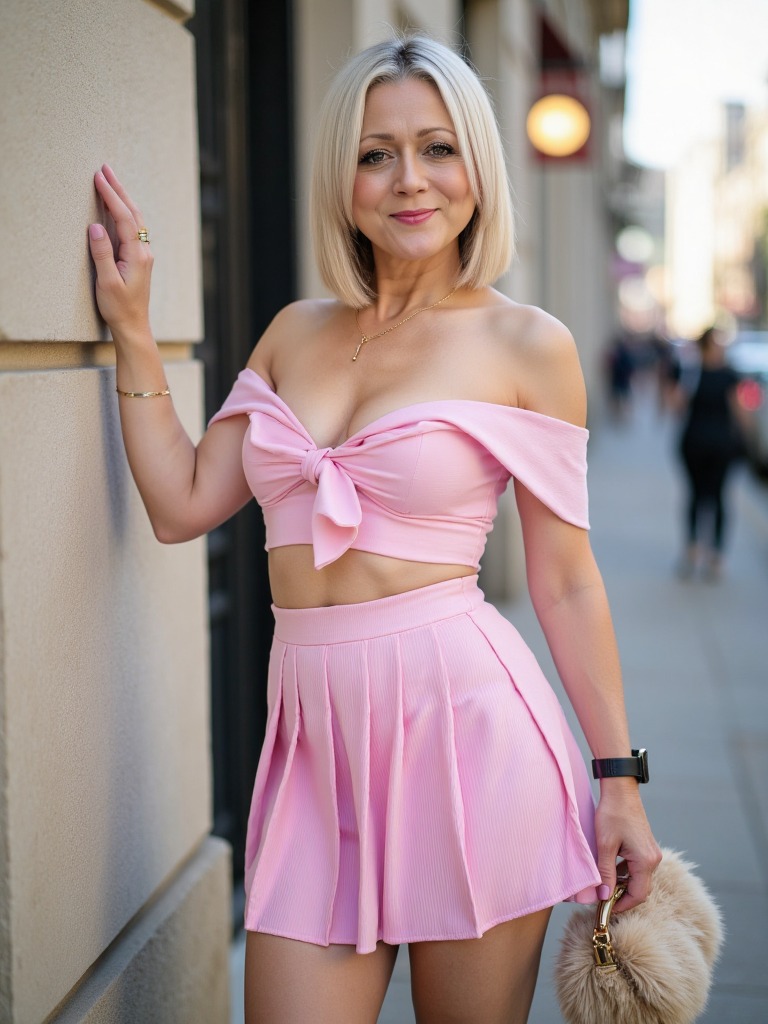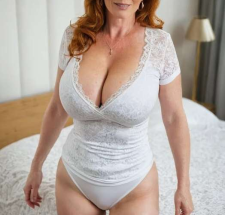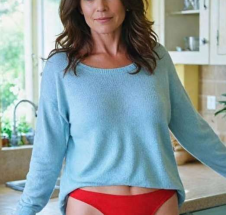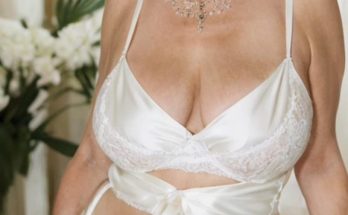It happened in a quiet coffee shop just before closing time. The kind of place where the lights are soft, the jazz plays low, and conversations hang in the air like perfume.
Harold sat at his usual corner table, reading glasses perched low on his nose, a half-finished latte in front of him. He wasn’t expecting company — certainly not her.
Her name was Margaret. Silver hair neatly tucked behind one ear, soft lines around her eyes, and a presence that made silence feel suddenly meaningful. She wasn’t the kind of woman who drew attention through noise or flash; she had the calm confidence of someone who had already lived, already learned, and now chose what truly mattered.
When she walked in, Harold caught himself glancing up twice. Not because she was “beautiful” in the loud, modern sense of the word — but because she carried something real. Something that made you slow down.

As she ordered her tea, she met his eyes briefly — and smiled. It was the kind of smile that acknowledged recognition, maybe curiosity, maybe something else that neither wanted to name.
Moments later, she took the seat across from him. “You always read that same book,” she teased, nodding toward the worn pages of The Old Man and the Sea.
Harold chuckled. “And you always order chamomile. Some habits don’t need fixing.”
She laughed — soft, restrained — and he noticed the faintest pink rising on her cheeks. That’s when he said it.
“You know,” he murmured, “you blush in the prettiest way.”
That was all it took. Her laughter froze, her lips parted slightly, and her hand — the one holding her cup — trembled just enough for him to notice.
Older women don’t blush easily. They’ve heard enough words, lived through enough insincere flattery to know when something’s just surface-level. But when they do blush… it’s never about embarrassment. It’s about memory. About something reawakened.
Margaret looked away, as if to hide the color rising in her face. But she couldn’t hide the small smile tugging at the corner of her lips. “You shouldn’t say things like that,” she whispered, eyes on her tea.
“Why not?” he asked.
“Because,” she said after a pause, “some things you say to a woman make her remember she’s still… alive.”
There it was — the quiet confession tucked inside her words. The kind that reveals more than any direct admission. Her blush wasn’t just shyness; it was revival.
When a woman her age blushes, it’s not about modesty. It’s about longing — the kind that’s been hidden beneath years of composure, routine, and restraint. It’s the body’s way of saying: You still move me. I still feel.
Harold didn’t reach across the table. He didn’t need to. The air between them had shifted — charged, warm, alive with what both of them felt but neither dared to act on.
She looked up again, meeting his eyes this time, and for a moment she didn’t blink. Her pupils widened just slightly — the kind of involuntary response that says yes without words.
He noticed. Of course he did. Men like Harold — men who’ve lived long enough to understand subtlety — know that a blush is never just a blush. It’s a pulse, a signal.
They talked for another hour. About books, family, travel. But beneath every sentence ran an unspoken current — the awareness of what was happening just under the surface.
When she stood to leave, she touched his hand lightly — almost by accident, almost not. Her fingers lingered longer than politeness required.
And there it was again — that same blush. Only this time, she didn’t look away.
She smiled, eyes soft but certain. “You made my night, Harold.”
Then she walked out into the cool evening, her shoulders straight, her steps lighter than when she came in.
He didn’t chase her. He didn’t need to. Because he understood exactly what her blush meant.
When an older woman blushes at your compliment, it’s not about the words themselves — it’s about being seen again. Being desired again. Being reminded that time hasn’t erased her power, only deepened it.
That’s what her blush says. Not “stop.” Not “I’m embarrassed.”
It says: I still have that spark. And you just saw it.
And for men who know how to notice — really notice — that single moment means more than anything else in the world.


